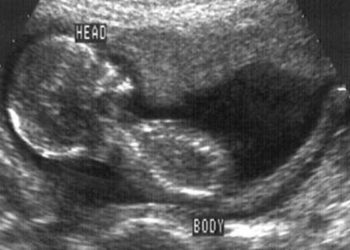Weight loss for infertile-obese women does not increase vaginal birth rates
1. Women who completed the weight loss program conceived naturally more frequently and were on infertility treatment for a shorter period compared to women in the control group.
2. Obese infertile women placed on a weight loss program for 6 months, followed by 18 months of infertility treatment, did not have higher rates of healthy vaginal births compared to obese infertile women undergoing infertility treatment for 24 months.
Evidence Rating Level: 1 (Excellent)
Study Rundown: Obesity is associated with numerous complications in women’s reproductive health such as anovulation and infertility. Medical infertility treatments have lower success rates, and pregnancy complications such as gestational diabetes and preterm births occur more frequently for obese women compared to non-obese females. Accumulation of this type of evidence has led to guidelines recommending weight loss for obese infertile women looking to conceive, though few large randomized studies have to-date supported this claim.
In line with modern infertility study recommendations, the primary outcome of this trial was vaginal birth of a health single child. Numerous secondary outcomes were measured including changes in participant weight, number of infertility treatments needed to conceive, and method of delivery. Two randomized groups were studied for 24 months: women who began infertility treatment at the beginning of the study (control group) and women participating in a 6 month program aiming with the goal of 5-10% body weight loss followed by 18 months of infertility treatment (intervention group). During the intervention phase participants worked with health coaches and followed nutritional and activity guidelines developed by the National Institutes of Health. At the end of the 24-month study, women in the interventional group conceived naturally at a significantly higher rate and also required less infertility treatment. However, women in the interventional group had significantly lower rates of healthy vaginal deliveries. Adverse events and pregnancy complications were not significantly different between the groups.
Click to read the study, published today in NEJM
Relevant Reading: Effect of body mass index on IVF treatment outcome: an updated systematic review and meta-analysis
In-Depth [randomized controlled trial]: From 2009 to 2012 women clinically defined as obese (with a BMI over 29), ages 18 to 39, and considered infertile were enrolled in a randomized trial assessing an intervention focused on weight loss and its impact on infertility and pregnancy outcomes. The study took place in the Netherlands at 23 medical sites. Infertility was defined as World Health Organization (WHO) class 1 or 2 anovulation or being unable to conceive in the previous 12 months despite an intact ovulatory cycle. Exclusionary criteria for the study included having severe endometriosis, premature ovarian failure, an endocrinopathy, being eligible for donor insemination due to partner azoospermia, and those with hypertension or hypertension complications in prior pregnancies. Patients enrolled were assigned in a 1:1 fashion to control or intervention groups (previously described). Infertility treatment involved 6 ovulatory cycles for the intervention group and 12 cycles for the control group of clomiphene citrate. In total, 280 women were followed in the interventional group and 284 in the control group. Women in the intervention group lost significantly more weight than those in the control group (mean of 4.4±5.8 vs. 1.1±4.3 kg, P<0.001). Women in the intervention group had significantly fewer healthy single child vaginal deliveries compared to the control group (27.1% vs. 35.2%, rate ratio in the intervention group 0.77; 95% confidence interval [CI], 0.60 to 0.99). There were no significant inter-group differences in terms of birth rates. There were no significant differences in regards to any of the secondary outcomes. The study was not blinded which limits the study’s generalizability.
Image: PD
©2016 2 Minute Medicine, Inc. All rights reserved. No works may be reproduced without expressed written consent from 2 Minute Medicine, Inc. Inquire about licensing here. No article should be construed as medical advice and is not intended as such by the authors or by 2 Minute Medicine, Inc.







